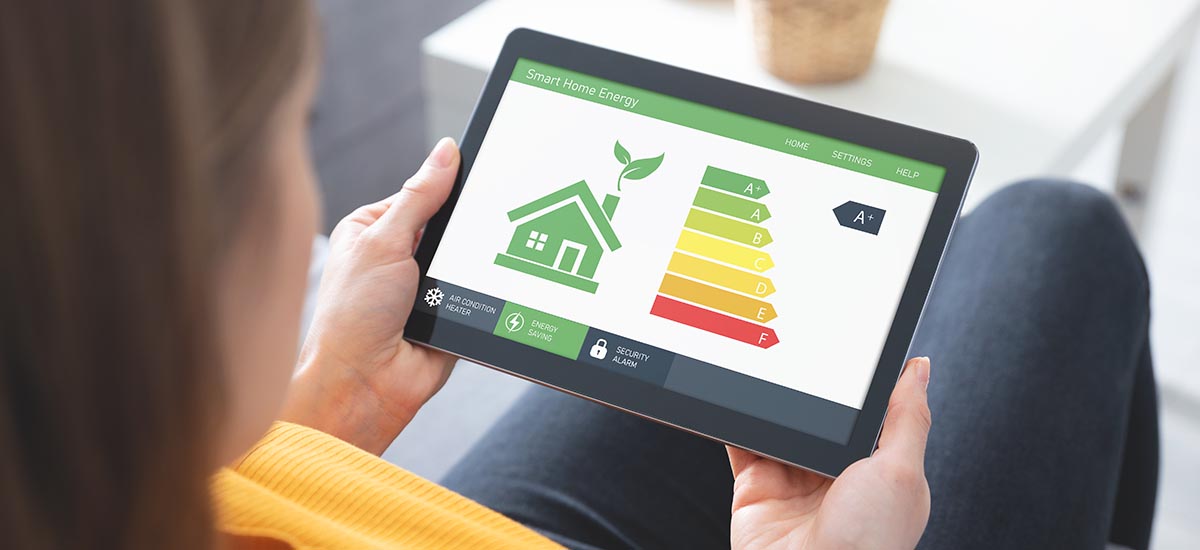
Category: Buyer, First Time Buyer, Sale & Purchase
Every home and new-build property that goes on the market for sale or rent in England needs an Energy Performance Certificate (EPC).
The EPC is a form that details the building's energy efficiency and highlights where a householder can make cost-effective energy savings. If you're selling a property, whether it be residential or commercial, you'll need to make sure you have a valid EPC.
But what is an EPC? How do you get one? How much do they cost, and how long do they last? Read on to find out more; this is the Energy Performance Certificate explained.
What is an Energy Performance Certificate?
What is an Energy Performance Certificate?
If you have recently bought a washing machine or tumble dryer, you'll have noticed the multi-coloured sticker on the appliance that rates its energy performance. An EPC does the same job for a property, whether it be residential or commercial. The system was first introduced in England and Wales in 2007.
What does an Energy Performance Certificate show?
What does an Energy Performance Certificate show?
An Energy Performance Certificate tells you how efficient the building is via a rating system that goes from A (very efficient) to G (inefficient). The EPC will also predict the rating that's possible if recommended improvements are carried out.
It highlights cost-effective ways to cut a property's carbon emissions, reduce energy use and get a higher rating. For example, the assessor may suggest increasing hot water insulation, adding internal/external wall insulation, or using low-wattage light bulbs.
Who provides an Energy Performance Certificate?
Who provides an Energy Performance Certificate?
An independent Domestic Energy Assessor visits each property to carry out the survey for an EPC. They are qualified in their field and must be members of approved accreditation schemes to ensure the certificate is valid.
The certificates themselves are regulated by the Energy Performance of Buildings Regulation, established in 2012. Each survey takes between 45 minutes and an hour and the assessor will need to access all areas of a property to produce the most thorough report.
How to get an Energy Performance Certificate
How to get an Energy Performance Certificate
You can get an EPC by booking an assessment through the government website. All you need to do is enter the postcode and whether the property is residential or commercial, and you'll be provided with a list of assessors in your area.
Please note that your Energy Performance Certificate will not be issued online - it requires an assessor to come and view your property in person.
How much does an Energy Performance Certificate cost?
How much does an Energy Performance Certificate cost?
EPCs do not come with a fixed cost. Larger properties are likely to take longer to inspect, while flats can be tricky because of access issues. Typically, you can expect to pay anything from £60 to £120 (including VAT).
Your estate agent may encourage you to order an EPC through them. However, that can often be a more expensive choice. Shop around for the best deal and liaise directly with a professional, accredited energy assessment company. You can find local companies on the official EPC site.
How long is an Energy Performance Certificate valid for?
How long is an Energy Performance Certificate valid for?
Each EPC is valid for 10 years from the date of issue.
How do I know if my property has an EPC?
How do I know if my property has an EPC?
All valid and up-to-date EPCs are listed on the government's Energy Performance Certificate Register. Just choose between domestic or non-domestic properties, type in the postcode and the site will tell you the EPC rating of your property as well as its expiry date.
When do I need an Energy Performance Certificate?
When do I need an Energy Performance Certificate?
You need to be able to present a valid EPC within seven days of a property being put up for sale or rent. If you are using an estate or letting agent, they should do this for you.
Do I need an Energy Performance Certificate if I'm moving?
Do I need an Energy Performance Certificate if I'm moving?
Yes. The law in England, Wales and Northern Ireland demands that all properties have a valid EPC. If you try to sell or rent without one, you could be fined up to £5,000.
You can check the register to ensure your Energy Performance Certificate is up to date before you put your home up for sale. If your EPC has expired, commission a new report promptly so that any prospective buyers can inspect the new certificate.
Do I need an Energy Performance Certificate for a commercial property?
Do I need an Energy Performance Certificate for a commercial property?
Yes, if you own, rent out or are selling a commercial property, you will need to have a valid EPC.
Selling your property? Homeward Legal can help
Making sure you have a valid Energy Performance Certificate is just one thing you have to take care of when selling a property. There are plenty of additional legal formalities and paperwork to deal with, which can make it seem like a daunting and complicated process. That's where Homeward Legal can support you.
We work with a nationwide panel of fully qualified conveyancing solicitors, to help you take the stress out of your move. So, why not get a quick quote or give us a call on today?
